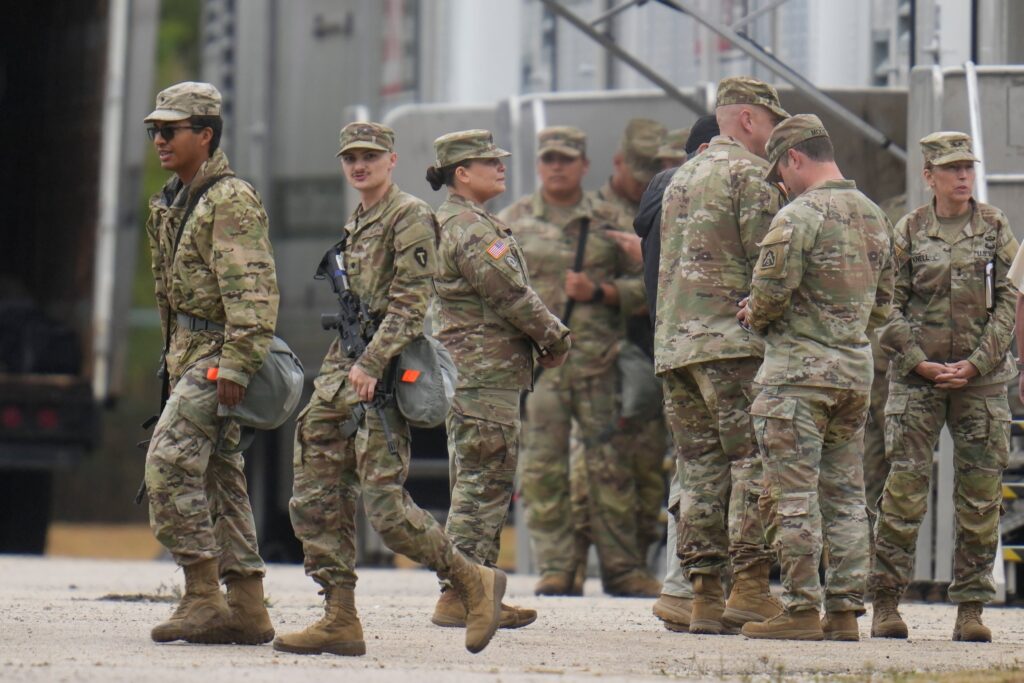When Texas Governor Greg Abbott announced that National Guard units were heading not south but north—to reinforce ICE facilities outside Chicago—the reactions were immediate and contradictory. The Texas Tribune reported the facts: Abbott expanded Operation Lone Star to “support overwhelmed federal facilities.” Within hours, Illinois Governor J.B. Pritzker called the move “political theater,” even as his own office quietly requested additional federal coordination.
The Fox News follow-up was less charitable. The Department of Homeland Security, apparently tired of the charade, released a detailed memo dismantling Pritzker’s claims line by line—a public fact-check that read more like an indictment. It confirmed what everyone in Chicago already knows: when the headlines get bad enough, the state’s definition of “cooperation” becomes whatever spares it embarrassment.
By midweek, the optics were unmistakable. Military convoys rumbling past shuttered factories. State troopers waving reporters away from a facility now guarded by soldiers. Chicago, the self-declared “Sanctuary City,” looked less like Ellis Island and more like an airport under federal control.
The Chicago Tribune tried to capture the nuance, describing a “strained partnership” between state officials and federal agencies over migrant housing, funding, and who exactly was in charge. Translation: no one wants the bill. The hotels are full, the shelters are closed, and every press conference is a contest to see who can feign surprise the longest.
This is the natural end point of a decade of political indulgence. Sanctuary policies were sold as moral triumphs, but they were designed by people who never expected to be tested. It’s easy to declare every border a welcome mat when the border is a thousand miles away. It’s harder when the buses start arriving with real people and real invoices.
Abbott’s expansion into Illinois isn’t just about enforcement—it’s narrative warfare. He’s making the point that the border crisis isn’t geographic, it’s systemic. And he’s using Chicago’s contradictions as Exhibit A. Texas now looks disciplined; Illinois looks delusional. One is executing policy, the other is holding press conferences about compassion while subcontracting the hard work.
Federal agencies are caught in the middle, trying to project calm while managing the impossible math of “limitless intake, limited resources.” Official statements reference “partnership,” “community impact,” and “shared goals,” but the footage tells a different story: strained agents, temporary tents, and state officials who’d rather be anywhere else.
The deeper failure here isn’t partisan—it’s conceptual. The modern “sanctuary” model was never built for sustainability; it was built for applause. It rewarded symbolism over capacity, slogans over spreadsheets. Chicago didn’t just run out of money—it ran out of moral credit. The politics of virtue collapsed under the cost of room service.
For Abbott, this moment is political gold. Every Guard truck parked outside an ICE facility is a campaign ad without narration. He’s proving a point that Washington and blue-state governors can’t rebut without admitting complicity: you can’t moralize your way out of arithmetic.
For Pritzker, it’s a trap. If he welcomes the deployment, he validates Abbott’s message; if he condemns it, he invites another week of footage showing uniformed Texans doing what Illinois officials won’t. Either way, the “sanctuary” myth gets thinner with every photo.
The crisis has exposed what sanctuary really means: federal dependency disguised as local virtue. Cities like Chicago rely on federal funding, federal enforcement, and federal restraint, all while proclaiming independence. It’s the civic equivalent of declaring yourself vegan while ordering steak on someone else’s card.
Somewhere inside DHS headquarters, a staffer is updating a PowerPoint slide titled Coordination Challenges. It will include new photos from Chicago—Humvees, tents, and the skyline—and end with a familiar bullet point: “State opposition continues.” What it won’t say, but should, is that the opposition isn’t really to Texas. It’s to reality itself.
Chicago built its brand on being welcoming. It’s now learning that good intentions don’t pay invoices, and federal patience isn’t infinite. When compassion collides with capacity, reality always wins.
Citations
- Texas Tribune – “Texas National Guard Deployed to Chicago as Abbott Expands Border Mission” (Oct 8 2025)
- Fox News – “DHS Takes Pritzker’s ‘Smorgasbord of Lies’ Apart, Releases List Debunking His Claims” (Oct 2025)
- Chicago Tribune – “Illinois, Federal Officials Clash Over Migrant Response and Guard Role” (Oct 2025)

